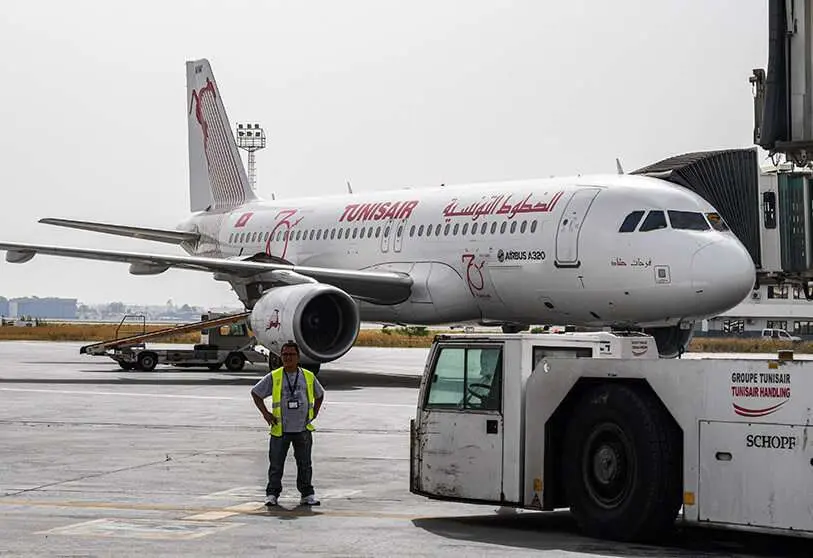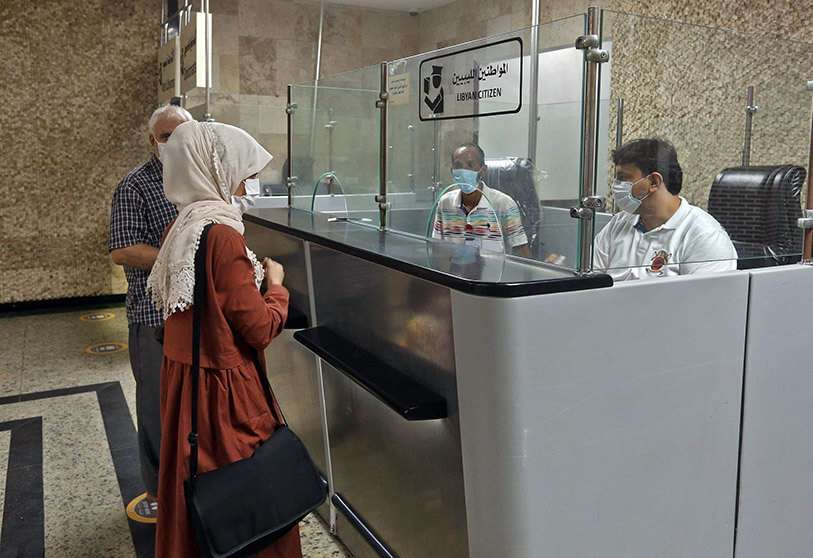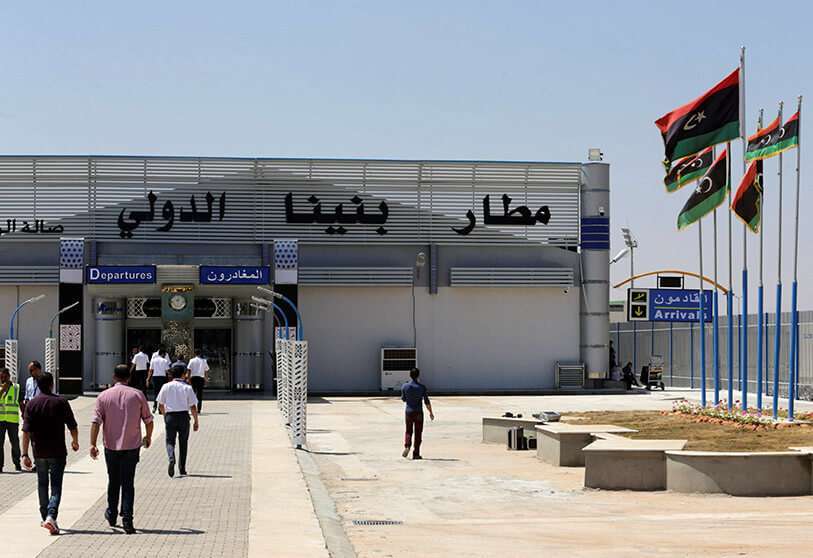First foreign airline flights to Libya in seven years

Tunisia's national carrier TunisAir announced on Tuesday that it had resumed flights to Libya, becoming the first international airline to serve the country since August 2014. Two planes landed on Monday in the capital Tripoli and Benghazi in eastern Libya, where Libyan firefighters celebrated by spraying them with water, according to TunisAir's communications department.
TunisAir, which had been the last foreign airline to stop flying to neighbouring Libya in August 2014, has become the first to resume operations in Libya. Until then, only Libyan airlines operated international flights, bound for Tunis, Istanbul and Alexandria, but they do not have access to European airspace.
TunisAir has been operating five weekly flights from Tunis, three to the capital Tripoli and two to Benghazi since 17 May, TunisAir said in a statement. The aim is to relaunch daily flights in the coming months, as before the conflict in 2011, the same source said.

After a decade of failures to pull Libya out of conflict, the formation of a new unity government earlier this year has raised some optimism about improving security and political stability. Prime Minister Abdul Hamid Dbeiba's government is charged with consolidating Libya's institutions and steering the country towards crucial elections, although resurgent divisions could jeopardise their holding on 24 December.
Following the Libyan Parliament's endorsement of the new Transitional Government led by Abdul Hamid Dbeiba, the first approaches from neighbouring countries have been made. Tunisia's support for the new Libyan government was voted by the Tunisian representatives and obtained 132 votes in favour out of the 133 deputies present in the assembly. After the vote, it was agreed that Saied, who on 17 March became the first Tunisian president to set foot on Libyan soil in the last nine years, would travel to Libya. The country led by Kais Saied considers Libya to be one of its strongest allies with a vision for the future.

President Saied has not had many meetings with foreign countries since he took office a year and a half ago in October 2019. He has made only two trips, to France and Algeria, which suggests that he may have certain interests in Libyan territory. In fact, various sources suggest that Tunisia intends to strengthen its role on the political scene and mitigate the consequences of its poor diplomatic action on Libyan territory. Even more so when the action of regional powers has intensified in recent times, which has led Tunisia to place relations with the interim government in Dbeiba among its top priorities.
The visit came after exports between the two countries fell by 50 per cent and 300,000 Tunisians have been unemployed since 2011 after working in the Libyan market. According to International Monetary Fund (IMF) reports, 70% of Tunisia's various trade exports are absorbed by the Libyan market.
The close economic and historical ties between Libya and Tunisia have suffered during the conflict, but Tunisia remains an important destination for Libyan holidays and medical tourism. Routes to Libya are among the most profitable for TunisAir, whose deep financial difficulties have been accentuated by the pandemic.
The Libyan war affected the movement of production in Tunisia as it could not find an alternative to the problems of closing the borders between the two countries. In addition to the impossibility of using Libyan seaports that had been used during the war.

Meanwhile, Libyan society, despite having significant oil reserves, has had to suffer the devastation of years of war, with major supply problems, power and transport cuts, and a continuous degradation of the economic situation in which they live.
World Bank reports also confirm that Libya is historically Tunisia's fifth strongest economic partner, with annual trade transactions exceeding $3 billion.
Tunisia is facing a severe economic crisis aggravated by the COVID-19 pandemic. The International Monetary Fund (IMF) has already called on Tunisia to carry out economic reforms to reduce fiscal deficits and large public sector debt, including cutting the wage bill, subsidies and transfers to state-owned enterprises.
The Tunisian economy has been facing difficulties since the 2011 revolution, and the repercussions of health measures stemming from the pandemic have further aggravated the financial situation of private and government enterprises.
According to IMF forecasts, the Tunisian economy is expected to grow by 3.8 per cent this year, although the Ministry of Finance estimates that the coronavirus pandemic has cost the state nearly €1.6 billion - 4.7 per cent of GDP - on top of a public debt that has broken its record of €30 billion.








